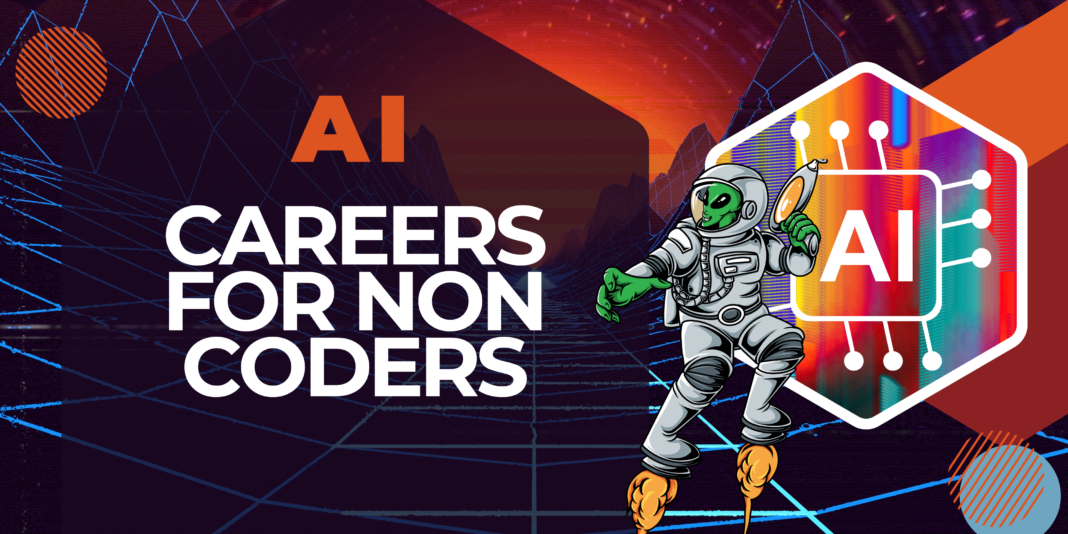The artificial intelligence (AI) industry is booming, with applications transforming healthcare, marketing, education, and beyond. But here’s a common myth: you need to be a coding wizard to break into AI. The truth? You don’t. Whether you’re a creative thinker, a communicator, or a strategist, there’s a place for you in AI. In this guide, we’ll explore how to build a career in AI without coding skills, offering practical steps and insider tips to get started today.
Understanding AI Career Opportunities Beyond Coding
AI isn’t just about writing algorithms—it’s about solving problems and creating value. Non-technical roles are critical to the ecosystem, and they’re growing fast. Here are some options for non-coders:
- AI Product Manager: Oversee AI projects and bridge the gap between tech teams and business goals.
- AI Ethics Consultant: Ensure AI systems are fair, transparent, and responsible.
- Data Strategist: Focus on how data drives AI, without needing to code it yourself.
These roles emphasize strategy, communication, and real-world impact over programming. Companies like Google, IBM, and startups alike need people who can translate AI into practical solutions—coding optional.
Identify Your Strengths and Transferable Skills
You don’t need a computer science degree to thrive in AI. What you do need is to recognize your strengths. Are you a great communicator? A problem-solver? Do you have expertise in healthcare, finance, or education? These are goldmines in AI.
For example:
- A marketer can use AI to analyze customer behavior.
- A teacher can shape AI tools for personalized learning.
Ask yourself:
- What do I enjoy doing?
- What skills do I already have?
- How can they connect to AI?
Your unique background is your ticket in—no coding required.
Learn the Basics of AI (No Coding Required)
You don’t need to master Python, but understanding AI basics gives you credibility. Focus on essentials like machine learning, neural networks, and the role of data in AI success. The best way to get started? The Deep Learning & NLP E-Degree from Eduonix. This comprehensive program is designed for non-coders, breaking down complex topics like natural language processing and deep learning into easy-to-grasp lessons. With expert-led instruction and practical insights, it’s the perfect launchpad to build your AI knowledge—no programming skills needed. Enroll today and take your first step toward an AI career!
Build Relevant Skills for Non-Technical AI Roles
Non-coding AI jobs demand practical skills. Here’s what to focus on:
1. Data Literacy: Learn to read data trends (think Excel or Google Sheets, not SQL).
2. Project Management: Use tools like Trello or Jira to manage AI workflows.
3. Communication: Explain complex AI concepts to non-techies.
Want to experiment? Try no-code AI platforms like Google AutoML or DataRobot to see AI in action. Bonus: Earn a certification in AI ethics or business analytics to stand out. These skills make you a valuable asset, no programming needed.
Gain Experience and Network in the AI Space
Experience beats theory every time. Start small:
- Volunteer: Help with data annotation or research for an AI project.
- Freelance: Offer your skills on platforms like Upwork (e.g., AI content strategy).
- Network: Join AI groups on LinkedIn or attend virtual events like AI4 or NeurIPS webinars.
Showcase your work: Update your LinkedIn with AI-related projects or build a simple portfolio. Even organizing a webinar on AI ethics counts! The key? Get visible in the AI community.
Pro tip: Search “AI networking events 2025” for upcoming opportunities.
Explore Growing AI Niches for Non-Coders
AI isn’t static—new niches are perfect for non-coders:
- AI Ethics: Address bias and fairness in AI systems.
- Regulation: Shape policies as governments tackle AI’s rise.
- Human-AI Interaction: Design how people use AI tools (think UX, not code).
These fields value psychology, law, and strategy over technical know-how. Take Jane Doe (not a real person), a former lawyer now advising on AI regulations—she pivoted without touching a line of code. Your perspective could shape the future.
Take the First Step—Start Small
Building an AI career doesn’t happen overnight, but it does start with one step:
- Sign up for a an AI course this week.
- Read an article on AI trends (try MIT Technology Review).
- Message someone in the field on LinkedIn.
Ditch the impostor syndrome—you don’t need to be a tech genius to contribute. AI needs diverse voices, and yours matters.
Conclusion
AI offers a world of opportunity beyond coding. From ethics to strategy, non-technical roles are shaping the industry’s future. You don’t need to be a programmer—just a learner with a plan. Pick one tip from this guide and start today. Your AI career is waiting.
Ready to dive in? Share your first step in the comments or explore more AI career resources below!



